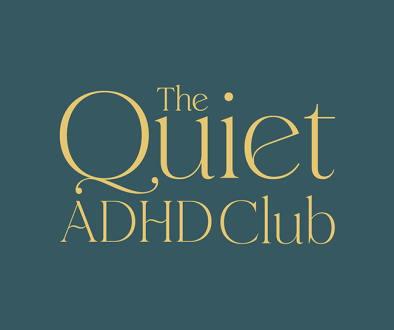New Year’s Resolutions for your relationship in 2025

It’s been an incredibly busy, exciting year for Karen Doherty Coaching. I’ve been training peers in the Karen Doherty Coaching Method and we’ve created the ND relationship Clinic. I have run talks in the ADHD community, Vision Days for couples, as well as highly impactful coaching programmes for our clients.
We’ve also produced valuable resources for couples on many relationship and neurodiversity-related topics. I aim to share my experience and insights with you. I also want to give you some key takeaways you can immediately implement in your relationship. While this doesn’t replace therapy and coaching, it’s a good introduction to what we do here and an example of putting strategies to work.
Here are 5 such strategies that you can put into practice in the New Year. Instead of making the same New Year’s Resolutions about going to the gym more, make your goals relational and watch it transform your daily life.
1 | Read more about ADHD and AS
Both neurotypical and neurodiverse individuals can benefit from educating themselves about neurodiversity and how it is presented in relationships. Giving context to certain behaviours can increase understanding and compassion, both for ourselves and others.
Reading books on the topic offers great insights and opportunities for self-help. The link between mental, physical and couple health is particularly fascinating. Gaining a broader view on your relationship can help transform chaos into balance.
By gaining an understanding of your own and your partner’s triggers, strengths, and weaknesses, you can develop better communication.
If reading isn’t your thing, why not try out some podcasts? You could listen to them while you’re doing boring chores or while you’re commuting to work. Podcasts can be really hit and miss, but don’t worry – I’ve compiled a list of podcast recommendations that bring both educational value and entertainment. [Link pending]
2 | Arrange regular check-ins with your partner
This next resolution applies to both neurotypical couples and couples where neurodiversity is present. Arranging regular check-ins will transform your couple’s communication. Too easily can we get caught up in the relentless rush of life and we don’t have the opportunity to fully express our feelings.
Check-ins are a great way to address resentment in your couple. The word “resentment” sounds daunting and negative – however, the first step is destigmatising it. We all have some resentment in us. And it doesn’t happen overnight – it subtly builds up over time when a pattern isn’t working. Addressing it is vital to making each other feel heard.
Here is the rephrased version, with different examples:
To foster constructive communication, couples should prioritise dedicated time to talk
- Allocate sufficient time for each partner to express their thoughts and feelings without interruption.
Consider a time limit of 45 minutes for each meeting. This helps maintain focus and prevents discussions from spiralling into unproductive arguments that can last for hours or abruptly end the conversation. - It is important to note that it’s counterproductive to dwell on specific past transgressions. Focusing on past mistakes can evoke feelings of shame, frustration, and defensiveness in your partner, escalating conflict rather than resolving it.
Instead of focusing on specific instances of wrongdoing, emphasise the impact of your partner’s behaviour on your emotions.
- For example, instead of saying: “You never clear up after we’ve eaten,” try: “I feel frustrated and overwhelmed when the clearing up isn’t done, as it adds to my to-do list.”
- Or, instead of saying: “You never listen to me,” try: “I feel unheard when I express my concerns, and it makes me feel unimportant.”
These ways of phrasing statements might feel unnatural at first, but they are much healthier and you will feel the difference over time, bringing your couple closer. Dedicating time also goes a long way to making your partner feel valued.
3 | Consider a Vision Day
I have been amazed at the impact my Vision Days have had on my couples this year and I cannot wait to do more of them.
Time-limited approaches to couple therapy offer several advantages over open-ended sessions. By setting a clear timeframe, couples gain a strong sense of direction and purpose, motivating them to actively work towards specific goals. This structured framework fosters accountability and helps to energise the therapeutic process..
My Vision Days are a dedicated day specifically designed to delve deeply into your relationship. During this intensive session, couples address challenges, explore their shared values, and envision their desired future together. It provides a unique opportunity to pause, reflect, and reconnect. I find these days incredibly rewarding. Couples arrive with a range of concerns – from navigating a crisis or planning for their legacy, to improving their communication in the present. We spend the entire day working and exploring these issues.
A Vision Day begins with an initial 1.5-hour online consultation to discuss your relationship goals and expectations.
Based on this consultation, I create a personalised plan to guide your immersive day of reflection, discussion, and future visioning.
Following the Vision Day, we schedule a follow-up session to review your progress and provide ongoing support.
This could be the relationship MOT you need in 2025. Transform your couple dynamic with a Vision Day.
4 | Agree on your “Couple Deal”
“The Deal” is your blueprint for relationship success. In 2025, why not make a blueprint with your partner?
If you’re unfamiliar with The Deal, this is a key concept in my Karen Doherty Coaching Method. In my work with couples, I often find the concept of the “relationship deal” to be invaluable. This framework encourages couples to reflect on their shared history, current realities, and aspirations for the future.
Crucially, the “deal” is not a rigid contract. It is a dynamic agreement that evolves alongside the couple’s changing needs and circumstances. This may involve renegotiating roles, adjusting expectations, and collaboratively addressing new challenges that arise throughout their journey together.
Pinpointing your couple deal is important if you have a dynamic or task balance that isn’t working and resentment is building. By making an agreement, you can nip that resentment in the bud before it becomes a crisis. Or, if your couple dynamic is already in crisis mode, this is an important step to getting back on track and evolving as a couple.
5 | Create your self-regulation toolkit
This resolution is applicable to everybody, but especially neurodivergent individuals. Managing stress for self-regulation is key for your individual well-being and that of your couple.
I’m sure you’ve heard the cliché, “If you don’t love yourself, how can you love anybody else?” and, while self-love is a more complex issue, there is a core truth to this adage. However, even if you’ve had therapy or are in therapy, it can be difficult to remember what makes you feel better when you feel dysregulated. The rational mind gets overwhelmed.
This is where your self-regulation toolkit comes in. For a deep-dive, check out self-regulation: a guide for couples.
Here is a condensed version that you can use as a cheat sheet in the new year:
Strategies
- Pause and reflect: Consider options before reacting.
- Delay gratification: Resist immediate impulses.
- Cognitive flexibility: Challenge negative thoughts.
Structure & organisation
- Time management: Prioritise tasks and stay organised.
- Reflection: Regularly review progress.
- Self-care: Prioritise sleep, exercise, and a balanced diet.
Overcoming common pitfalls
Managing stress:
- Identify triggers.
- Practice relaxation techniques.
- Prioritise self-care.
- Set boundaries.
- Seek support.
Conquering procrastination:
- Break down tasks.
- Set deadlines.
- Create a conducive work environment.
- Implement reward systems.
- Build self-discipline.
Embracing mindfulness
- Focus on the present moment.
- Observe thoughts without judgement.
- Cultivate awareness of bodily sensations.
Self-compassion
- Forgive yourself.
- Challenge negative thoughts.
- Focus on strengths.
- Surround yourself with support.
Understanding co-regulation
- Interconnected emotional states: Recognise the influence of others.
- Mutual influence: Shape and be shaped by your partner’s emotional state.
- Lifelong skills: Co-regulation benefits relationships at all stages.
Before you embark on the new year and your resolutions, take a moment to give yourself and your partner credit. If you are making a conscious effort to check in and see where you can improve your communication, it shows you really care about your relationship. Congratulate yourself on your wins too. Happy New Year!



